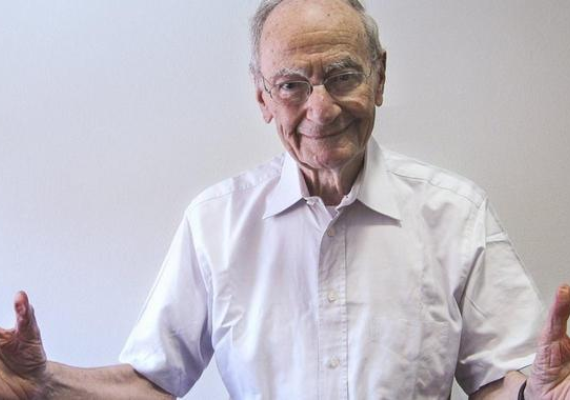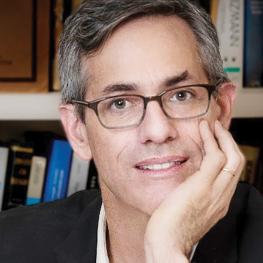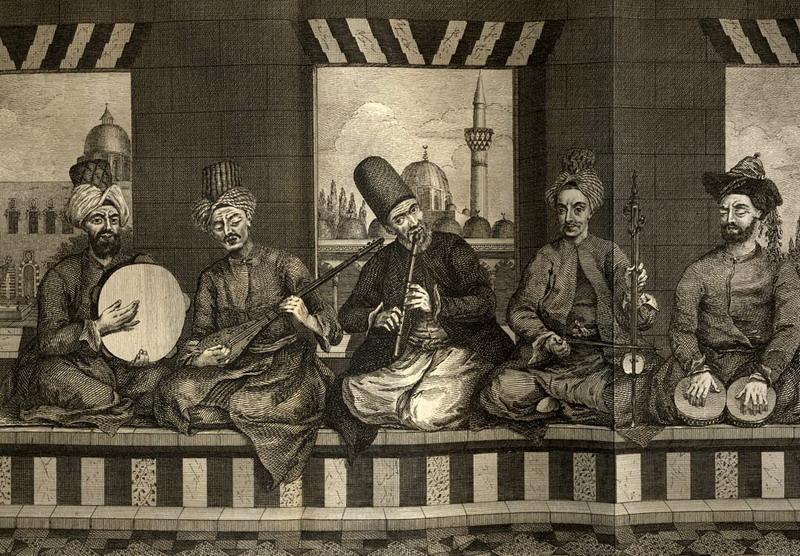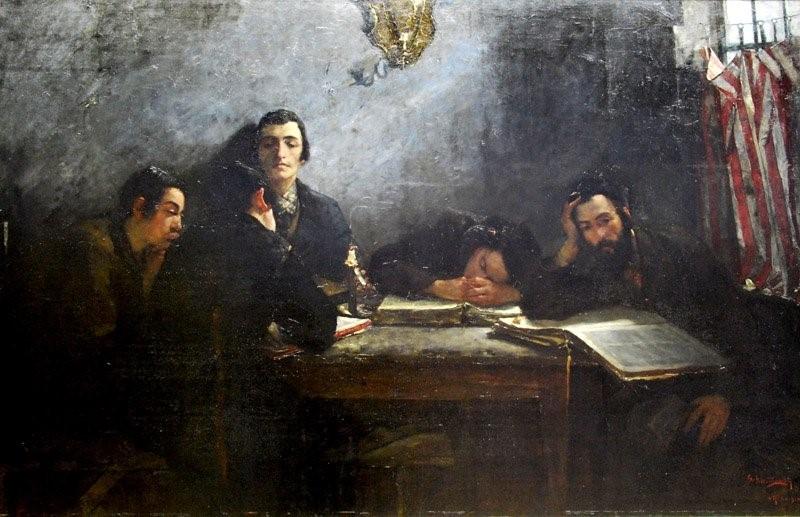JQR Contributor Conversation: Ismar Schorsch on Wissenschaft

JQR 109.3 was devoted to new perspectives on Wissenschaft des Judentums, the movement for scholarly study of Judaism. Here, editor David Myers speaks with Ismar Schorsch about Schorsch’s essay “In the Shadow of Wellhausen: Heinrich Graetz as a Biblical Critic” and his wider interest in the subject.
David Myers: You have devoted a large portion of your distinguished career to studying Wissenschaft des Judentums, the scholarly movement that gave rise to modern Jewish studies. Why?
Ismar Schorsch: Modernity confronted Ashkenazi Jews both politically and intellectually. Emancipation comprised their bitter struggle for equal rights whereas Wissenschaft des Judentums was the story of their need to reconcile themselves to new knowledge and contextualize it. Erasmus’s Greek edition of the New Testament vindicated Luther’s bold initiative to translate it into German, leaving the Vulgate in the dust. Similarly, centuries later, Krochmal acknowledged that Jews could no longer ascribe Psalm 126 to David when universities were disseminating hard evidence that it was authored after the destruction of the First Temple. To be sure, Krochmal’s small-scale example was meant to illustrate the gravitas of the larger generic problem. Emancipation may have been susceptible to culmination; Wissenschaft des Judentums definitely was not. With their emergence from the insularity of the ghetto, Jews were swamped by recurring waves of new knowledge that called for reconciliation and revision. It was this enduring and fundamental nature of Wissenschaft des Judentums that attracted me.
David Myers: In 2016, you came out with a major book on Leopold Zunz, which occupied you for decades. Now, in your JQR article, you turn your attention to another key German-Jewish scholar, Heinrich Graetz, the great nineteenth-century macrohistorian. It is curious that his work as a Bible scholar in the last two decades of his life has not been noticed much by scholars. Why not? And why your own interest?
Ismar Schorsch: Graetz’s biblical scholarship was overlooked because students of the Wissenschaft movement generally discounted the value of Jewish biblical criticism in the nineteenth century. Their silence ensured the dominance of Protestant biblical criticism, a fact implied in the title of my essay by the phrase “In the Shadow of Wellhausen.” Still, I wanted to understand the motive behind the energy and erudition that Graetz invested in the field. Graetz was determined to correct Zunz’s omission of biblical criticism from the agenda of his conception of Wissenschaft des Judentums. In 1818 and well into the twentieth century, Protestant theological faculties were the creative wellsprings of biblical scholarship in Germany. Rather than compete, Zunz stressed what they omitted: the dynamic and multifaceted nature of medieval Jewish literature. Judaism did not fall into senescence after the biblical period. In a much later essay Zunz bravely tried to expand the boundaries of Wissenschaft des Judentums.
David Myers: Graetz was critical of the documentary hypothesis of his contemporary, Julius Wellhausen, but also open to critical approaches, including source criticism, to understanding the Bible. You describe his approach as “increasingly secular in spirit” but “thoroughly Jewish.” Can we piece together how Graetz understood the composition of the Pentateuch?
Ismar Schorsch: My sense is that Graetz took most of the Torah at face value, that is as history.
David Myers: Solomon Schechter, your renowned predecessor as leader of the Jewish Theological Seminary, famously referred to higher biblical criticism as “Higher Anti-Semitism.” Did Graetz sense that antagonism in his Christian peers? Do you regard Schechter’s judgment as warranted or fair?
Ismar Schorsch: Remember that Schechter wrote his essay in the wake of the pernicious Babel und Bibel debate which stripped the Hebrew Bible of its originality. I regard his judgment as largely confirmed by subsequent research. The underlying paradigm of Protestant scholarship was development with the New Testament superseding the Old. By dating Leviticus (P) to the Babylonian exile, Wellhausen asserted that Judaism with its pervasive trope of law, sin, and guilt had already declined into a state of Spätjudentum. In the final analysis the German university remained a Christian institution with no interest in post-biblical Judaism. Zunz’s prodigious creation of the fields of midrash and piyyut utterly failed to attenuate the academic denigration of Judaism. For Zunz, Wissenschaft des Judentums always included a political agenda. Emancipation had to be anchored in respect for Judaism. But in its Sonderweg Prussia, and later Germany, identified as a Christian state that remained inhospitable to Jews and Judaism. The German university was but an extension of German society.
David Myers: You reconstruct Graetz’s quest “to reclaim the Hebrew Bible as a legitimate concern for Jewish scholarship.” What is Graetz’s legacy as a Bible critic? Was he the progenitor of Jewish higher criticism? Did he pioneer a distinctively Breslau approach to the Bible?
Ismar Schorsch: Though by no means the progenitor of Jewish biblical criticism, Graetz’s legacy was to elevate its importance within the framework of Wissenschaft des Judentums. Scholars like Jost, Krochmal, and Luzzatto had preceded him and Geiger surpassed him in terms of originality. Indeed if Geiger had lived another decade, he would have been the greatest biblical scholar of the Wissenschaft era. But Graetz did leave behind a legacy that vibrated with passion, power, and artistry which like his Geschichte der Juden as a whole imbued Jews with pride and meaning. In the process he replaced revelation with history as the ultimate source of authority in Jewish life.
ISMAR SCHORSCH is Chancellor Emeritus of The Jewish Theological Seminary and Rabbi Herman Abramovitz Distinguished Service Professor of Jewish History.


